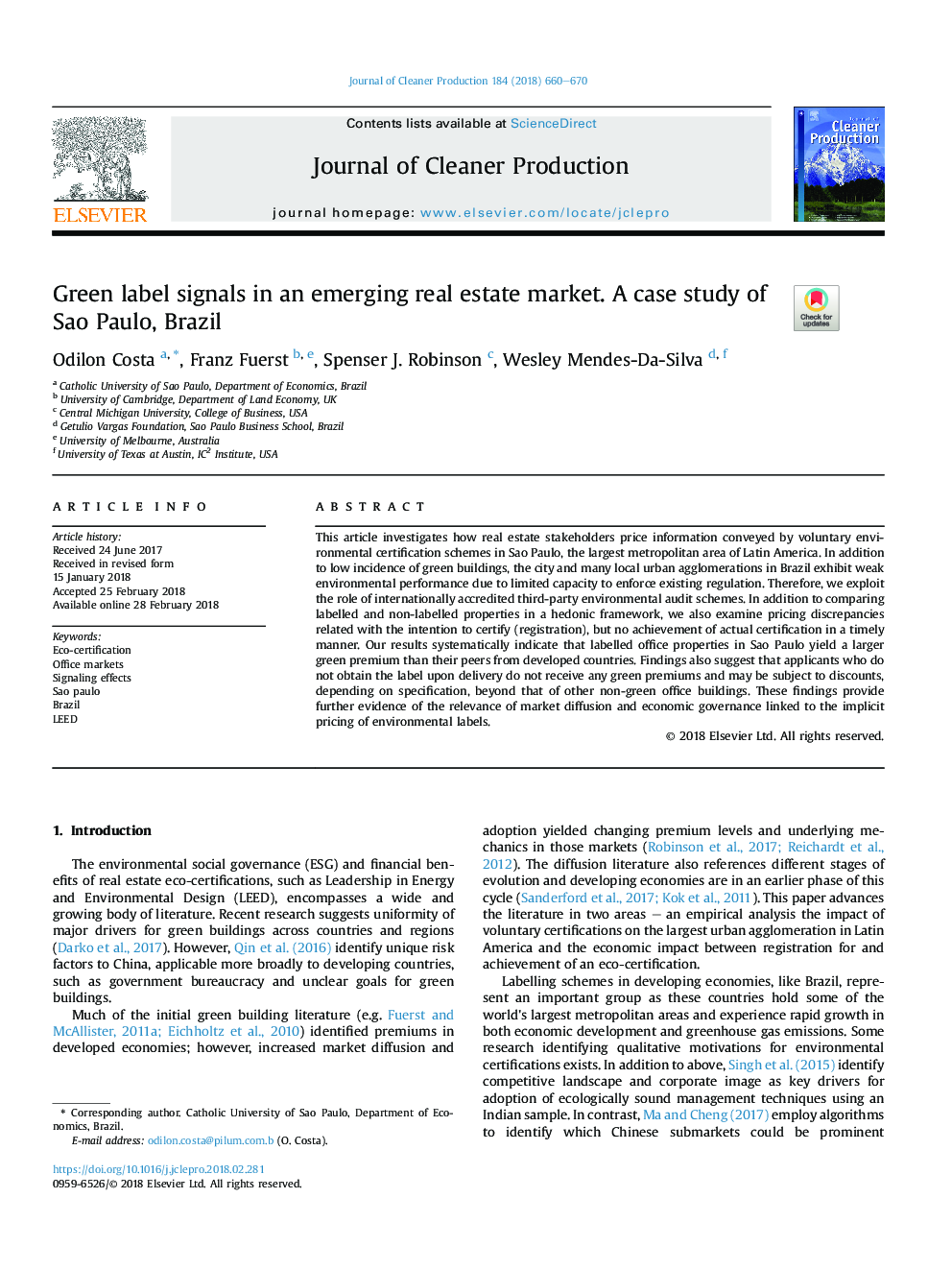| Article ID | Journal | Published Year | Pages | File Type |
|---|---|---|---|---|
| 8096787 | Journal of Cleaner Production | 2018 | 11 Pages |
Abstract
This article investigates how real estate stakeholders price information conveyed by voluntary environmental certification schemes in Sao Paulo, the largest metropolitan area of Latin America. In addition to low incidence of green buildings, the city and many local urban agglomerations in Brazil exhibit weak environmental performance due to limited capacity to enforce existing regulation. Therefore, we exploit the role of internationally accredited third-party environmental audit schemes. In addition to comparing labelled and non-labelled properties in a hedonic framework, we also examine pricing discrepancies related with the intention to certify (registration), but no achievement of actual certification in a timely manner. Our results systematically indicate that labelled office properties in Sao Paulo yield a larger green premium than their peers from developed countries. Findings also suggest that applicants who do not obtain the label upon delivery do not receive any green premiums and may be subject to discounts, depending on specification, beyond that of other non-green office buildings. These findings provide further evidence of the relevance of market diffusion and economic governance linked to the implicit pricing of environmental labels.
Keywords
Related Topics
Physical Sciences and Engineering
Energy
Renewable Energy, Sustainability and the Environment
Authors
Odilon PhD, Franz PhD, Spenser J. PhD, Wesley PhD,
